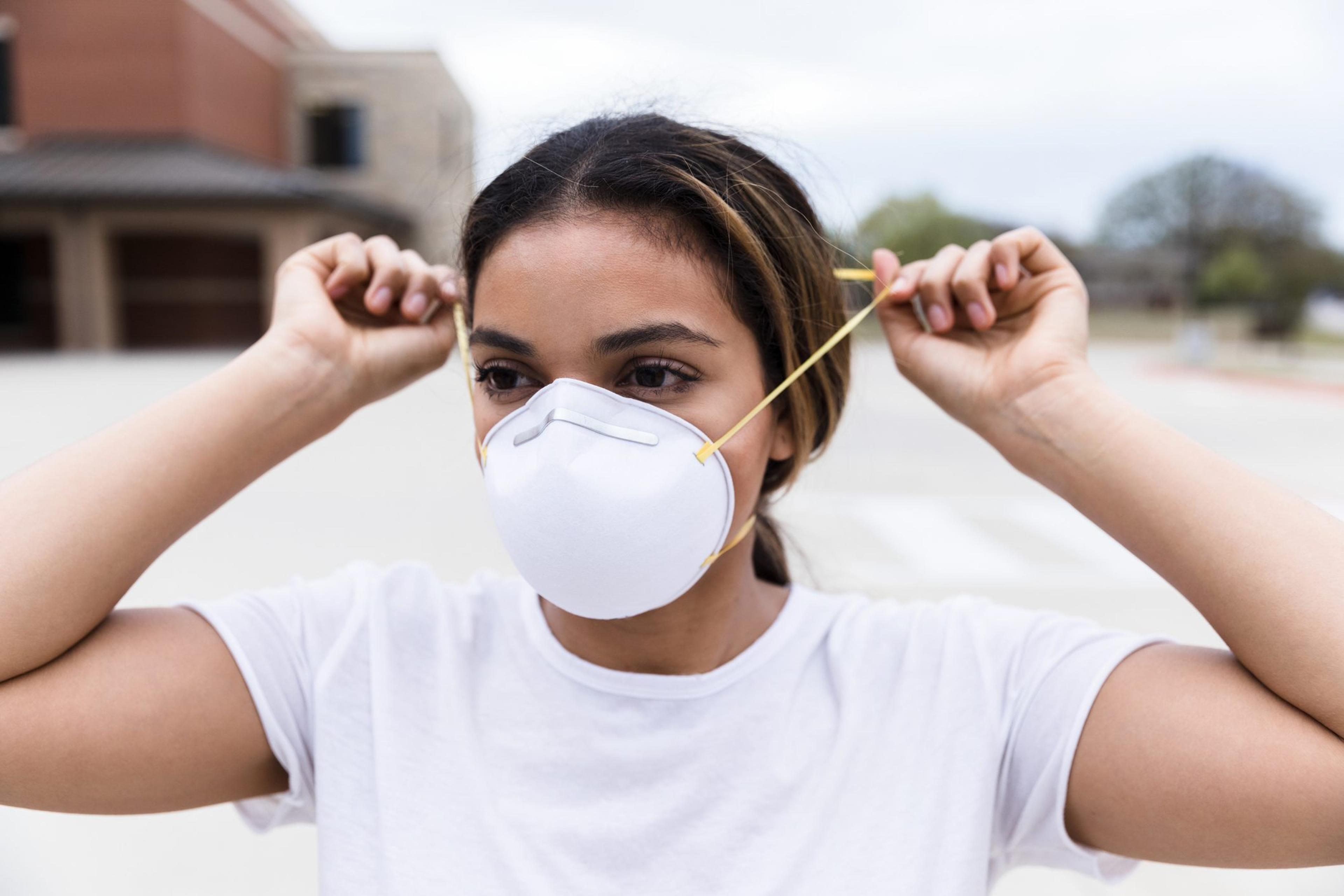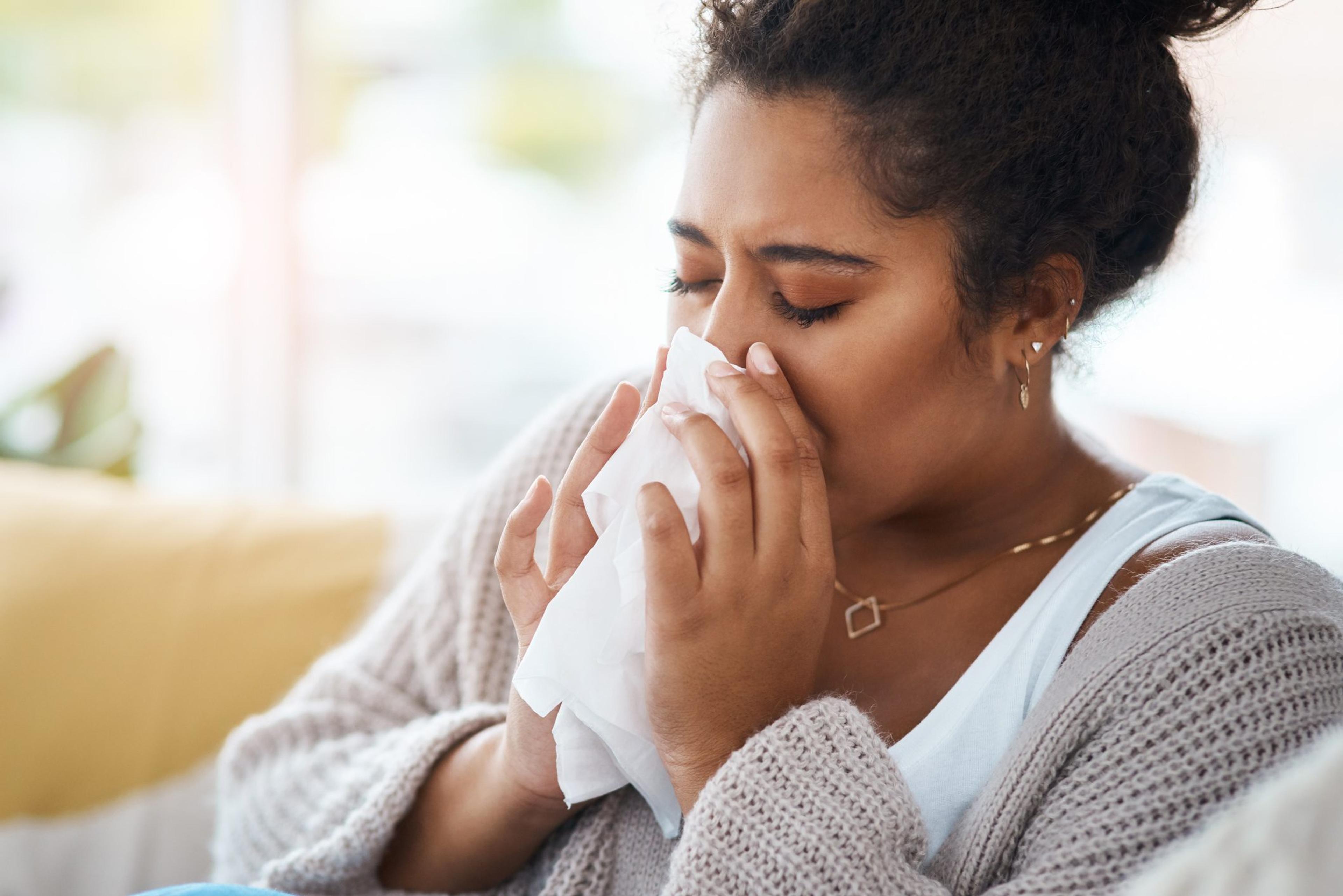How to Care for Your N95 Mask
Amy Barczy
| 3 min read
Amy Barczy is a former brand journalist who authored content at Blue Cross Blue Shield of Michigan. Prior to her time at Blue Cross from 2019-2024, she was a statewide news reporter for MLive.com. She has a decade of storytelling experience in local news media markets including Lansing, Grand Rapids, Holland, Ann Arbor and Port Huron.

Wearing a well-fitting mask in indoor public places is important for both vaccinated and unvaccinated individuals to prevent the spread of the virus that causes COVID-19. But not all masks are created equal. The N95 mask offers the highest level of protection for the wearer, as it is the only type of mask that keeps the COVID virus out. Other masks – like blue surgical masks or cloth masks – prevent the wearer from passing the virus to others. Increasingly, public health officials have encouraged the use of blue surgical masks over cloth masks. Now, officials are encouraging more widespread use of N95 masks as COVID continues to spread and new, more contagious variants circulate.
Free Masks Available
Free N95 masks are available at local pharmacies and community health centers, as the federal government is working to distribute 400 million masks across the country. N95 is a designation given to a specific type of respirator and is regulated by the Food and Drug Administration and the Center for Disease Control and Prevention’s National Institute for Occupational Safety and Health. N95 masks are meant to protect the wearer from particles or liquid contamination. The mask must seal to your face to work properly. People with chronic respiratory, cardiac, or other medical conditions that make breathing difficult should check with their health care provider before using an N95 respirator. Learning how to wear and care for your N95 mask is important to ensure you’re using it properly.
Extend the Life of Your Mask
While N95 masks are intended to be single use for health care professionals, there are ways for the average person to extend the life of their N95 mask. N95 masks are more expensive than blue surgical masks or cloth masks due to their higher quality. Here are some guidelines for how to handle your N95 mask from the CDC:
- Do not wash your N95 mask
- Do not put your N95 mask in the oven or microwave to sterilize it
- Throw out the N95 mask when the straps are stretched out or it no longer fits snugly against your face
- Throw out the N95 mask if it becomes wet, dirty, or damaged
The CDC says if your mask has not become wet, dirty, or damaged and the straps are still in good shape, you can place your mask in a dry, breathable bag – like paper or mesh fabric bag – to keep it clean between uses. Experts say if you keep the mask in the bag for at least 48 hours, it will allow any germs on the mask to die before re-use it. This method would work optimally if someone had multiple masks and could rotate them throughout their week. In addition to wearing a mask indoors in public places, the best way to prevent the spread of COVID-19 is by getting vaccinated and boosted against the virus. Find a vaccination location here. More from MIBluesPerspectives:
- How to Use At-Home COVID-19 Test Kits
- Exercise After COVID: Michigan Runner Races Again After ‘Severe’ Bout with Virus
- Tips for When and Where to find a COVID-19 Test
Photo credit: Getty Images





